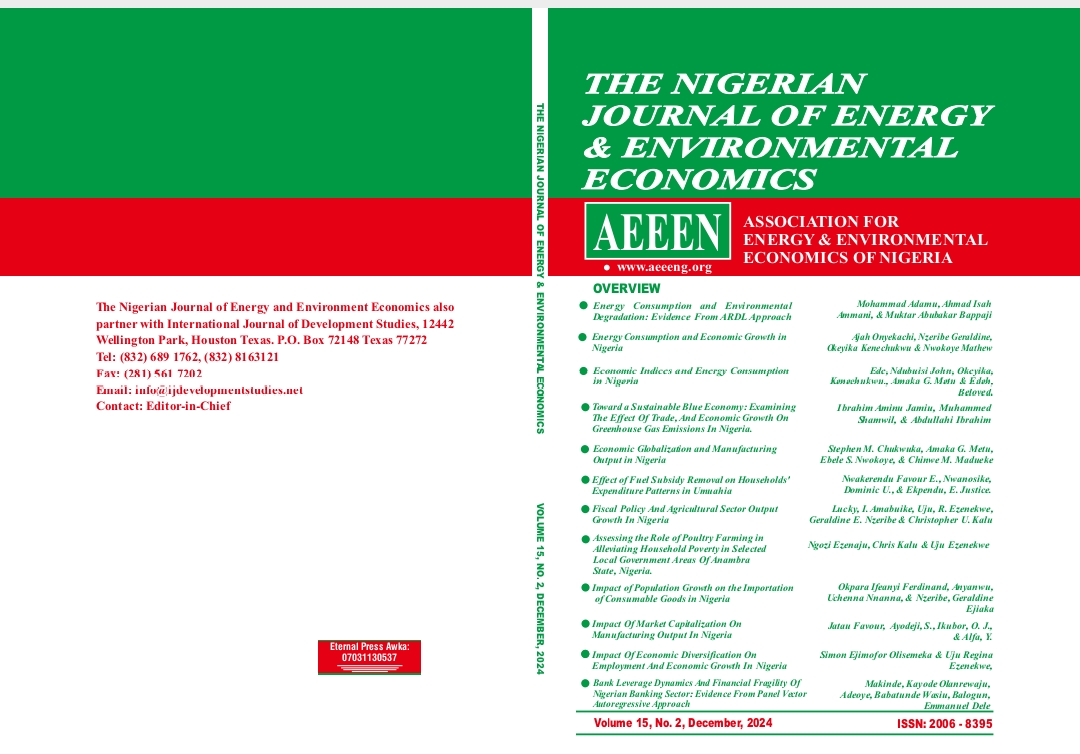FISCAL POLICY AND AGRICULTURAL SECTOR OUTPUT GROWTH IN NIGERIA
Keywords:
Fiscal policy, government expenditure, zero hunger, ARDL techniqueAbstract
The quest for every government to maintain a stable and steady economic growth continues to
mount great pressure on policy makers to design and implement adequate and effective policies
to spur the activities of the real sector. This paper examined the impact of fiscal policy tools
on agricultural sector output growth in Nigeria with annual data from 1980 to 2023.
Autoregressive distributed lag (ARDL) technique was employed for the analysis and the
empirical results confirmed that government expenditure on agricultural sector and domestic
capital formation had positive and significant effect on agricultural output. Value added tax
had negative and insignificant effect on agricultural sector output. Other findings showed that
exchange rate had a negative but significant impact on agricultural output in the short run while
in the long run exchange rate had a positive and significant impact on agricultural output.
Inflation rate had a negative and insignificant effect on agricultural output both in the short run
and long run periods. Based on the findings, the paper recommends policies such as increase
in government budget on agriculture as necessary and sacrosanct to expand the activities of the
real sectors especially that of agricultural sector in order to meet the target of sustainable
development goal two (ZERO HUNGER) and also to curb food insecurity through direct
domestic production.


